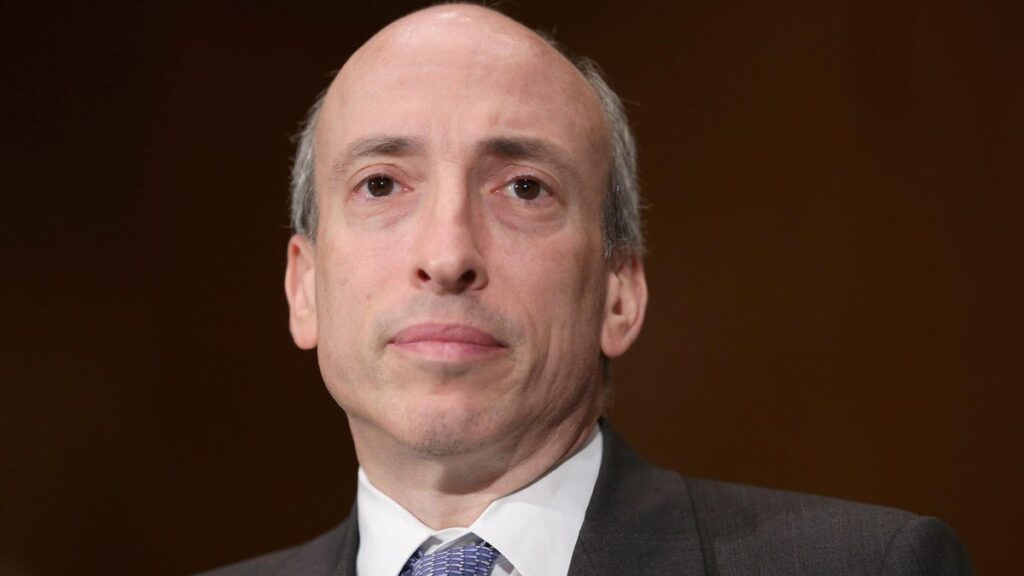Reports have emerged on social media suggesting that creditors of the now-defunct Bitcoin exchange, Mt. Gox, have begun receiving fiat repayments for their long-trapped Bitcoin holdings.
These funds had been inaccessible since February 2014.
Reddit posts on the r/mtgoxinsolvency page indicate that Mt. Gox has been sending repayments denominated in Japanese Yen to users via PayPal, marking a remarkable development nearly a decade after the funds became locked on the exchange on February 24, 2014.
It should be noted that these reports are yet to be officially confirmed.
Reddit user Free-end254 excitedly claimed, “I just got paid,” sharing a screenshot of the email containing a PayPal payment receipt.
Another user expressed similar surprise, having initially suspected a phishing scam before finding a genuine payment in their PayPal account.
However, one user disclosed that only a portion of their 0.125 Bitcoin claim had been repaid, receiving 30,283 yen, equivalent to $200 at the current exchange rate, and still awaiting an approximate payment of $748.
READ MORE: Coinbase Strongly Denies Senator Warren’s Allegations of Regulatory Manipulation
Repayments to creditors are expected to be made in multiple installments, including the base repayment, early lump-sum repayment, and intermediate repayment.
The first instances of these repayments became public on December 21, when a pseudonymous Japanese user announced that they had received their Mt. Gox claims via a bank transfer, credited in Japanese Yen.
This development follows an email from Nobuaki Kobayashi, the trustee overseeing Mt. Gox’s estate, sent to rehabilitation creditors on November 21, notifying them of the commencement of repayments.
The email mentioned that the trustee intends to initiate cash repayments in 2023 and anticipates continuing the process into 2024.
However, no specific timeline for repayments to individual rehabilitation creditors was provided.
Notably, on September 21, the Mt. Gox Trustee extended the repayment deadline from October 31, 2023, to the same date in 2024.
Nevertheless, the trustee indicated that some repayments could be made “as early as the end of this year” for rehabilitation creditors who had already furnished the necessary information.
Cointelegraph reached out to Mt. Gox for comment but had not received an immediate response at the time of reporting.
The unfolding situation is being closely watched by creditors who have been awaiting the return of their long-frozen assets for years.
United States-approved spot Bitcoin exchange-traded funds (ETFs) are poised to make a seismic impact on the crypto-related ETF market, potentially eclipsing its current valuation of $50.3 billion in assets under management, as per recent findings from BitMEX research.
As the anticipation for SEC approval of spot Bitcoin ETFs builds, a comprehensive list of existing crypto-related exchange-traded products has been compiled.
This list encompasses both spot and futures funds, predominantly tracking the performance of Bitcoin and Ethereum.
Leading the pack is Grayscale’s Bitcoin Trust, which is actively pursuing conversion into a spot ETF.
Market experts are optimistic about the prospects of a spot Bitcoin ETF, with expectations that its approval, possibly as early as January 10th, could effectively double the capital invested in crypto ETPs.
Bitwise, a crypto investment fund, projects that spot Bitcoin ETFs have the potential to amass a staggering $72 billion in assets under management within the next five years, surpassing the current market size.
However, global fund manager Van Eck offers a more conservative estimate, predicting around $2.4 billion in inflows into spot Bitcoin products during the first quarter of 2024.
READ MORE: Bitcoin Holds Steady as Traders Anticipate Year-End Price Surge
Despite never gaining approval in the U.S., spot Bitcoin ETFs have already found a home in countries like Canada, Australia, and Germany, allowing investors to acquire shares in these ETFs.
The enthusiasm surrounding spot Bitcoin ETFs reflects a broader trend of institutional investment in crypto products over recent months.
A report from ETF research firm ETFGI, published on December 21st, disclosed that crypto ETFs worldwide had accumulated year-to-date net inflows of $1.6 billion, with a significant portion, $1.31 billion, flowing in during November alone.
This figure represents almost double the $750 million net inflows observed in crypto ETPs throughout 2022.
Out of the 150 crypto funds available, the top 20 ETFs have attracted the most substantial investments, totaling $1.3 billion throughout 2023.
Notably, the ProShares Bitcoin Strategy ETF (BITO), launched during a crypto bull market in October 2021, stands out with the largest individual inflows, securing an additional $278.7 million in 2023.
In conclusion, the imminent approval of spot Bitcoin ETFs in the United States has the potential to reshape the landscape of crypto-related ETFs, potentially dwarfing the market’s existing valuation and solidifying the growing trend of institutional interest in cryptocurrency investments.
Despite the challenges faced by the cryptocurrency market in 2023, industry analysts are maintaining an optimistic outlook, with some even predicting that the number of crypto users will approach one billion by 2024.
Bitfinex, a prominent cryptocurrency exchange, recently published a report indicating that by December 1, 2023, the global count of cryptocurrency owners had surged to 575 million, a significant increase from the 432 million recorded at the beginning of the same year.
Encouragingly, Bitfinex analysts suggested that this number could escalate even further, potentially reaching between 850 and 950 million.
Their projection hinges on the continuation of the current bullish market trends into 2024.
In their report, they stated, “Looking ahead to 2024, and contingent upon market conditions, we anticipate that the number of global cryptocurrency owners could escalate to between 850 and 950 million.
This projection underscores the increasing global interest in and acceptance of cryptocurrencies.”
READ MORE: Asset Management Firm Ikigai Sells $65 Million Claim in FTX Bankruptcy
Moreover, Bitfinex analysts pointed out that investment activities within the crypto space are also on the rise.
They emphasized the potential impact of the approval of a spot Bitcoin exchange-traded fund (ETF) on market growth, suggesting that it could surpass the expected inflows as indicated by market charts.
In a separate interview with CNBC on December 20, Grayscale CEO Michael Sonnenshein added his voice to the chorus of optimism regarding cryptocurrency adoption.
He mentioned that the approval of a spot Bitcoin ETF could significantly boost Bitcoin’s adoption, potentially opening the door to the vast U.S. “advise market,” which is valued at approximately $30 trillion.
Statista, a prominent statistics website, also has its own projections for the growth of the crypto user base.
According to Statista, the number of cryptocurrency users may surge to nearly 833 million by 2024 and could approach approximately 992 million by 2028.
These projections further underline the positive sentiment surrounding the future of cryptocurrencies and their adoption on a global scale.
In summary, despite the challenges faced by the cryptocurrency market in 2023, industry experts and analysts are expressing a high degree of optimism, foreseeing a significant expansion in the number of crypto users, driven by increasing interest and acceptance of cryptocurrencies worldwide.
According to the persistent trader known as Il Capo of Crypto, Bitcoin, Ether, and other cryptocurrencies may be headed for “new lows,” despite their remarkable gains this year.
Il Capo, who has maintained a $12,000 BTC price target throughout the year, recently declared the end of the current bull market in a December 22nd post on X (formerly Twitter).
While Bitcoin and Ether have surged by 163% and 92%, respectively, year-to-date, as reported by Cointelegraph Markets Pro and TradingView, Il Capo remains skeptical, predicting a looming collapse.
They suggest that BTC/USD is likely “forming a local top here at 40k–45k” and that Ethereum (ETH) could potentially drop to the 2500s, with some altcoins experiencing their final pumps before a reversal to new lows in the coming weeks.
Il Capo’s bearish outlook coincides with significant developments in Bitcoin’s history, notably the impending approval of the first Bitcoin spot price exchange-traded fund (ETF) in the United States.
Many consider this event a pivotal moment that could open the doors for institutional capital to flow into Bitcoin.
READ MORE: Solana Surges 18% in 24 Hours, Claims Fourth Spot in Cryptocurrency Market Capitalization
With a popular BTC price target of $48,000 associated with this decision expected by January 10, 2023, Il Capo’s skepticism seems to diverge from the overall bullish sentiment prevailing in the market.
In November, they already hinted at the “beginning of the end” and noted that prices were rising higher than anticipated, accompanied by extremely bullish sentiment.
Others also acknowledge the possibility of a significant correction, even in the event of a positive ETF confirmation, viewing it as a potentially healthy catalyst for the bull market.
Trading firm QCP Capital, in its final market update for 2023, speculated that a “sell the news” scenario could unfold in the second week of January, leading to topside resistance for BTC in the 45-48.5k region and a possible retracement to 36k levels before the uptrend resumes.
Despite short-term uncertainties, there is confidence that the upward trend in cryptocurrencies will eventually continue, especially as the market positions itself for a strong rally into the Bitcoin halving, albeit possibly after a few weeks of market adjustment.
As Il Capo of Crypto stands firm in their bearish perspective, the crypto community awaits the unfolding of these critical events to determine the market’s future direction.
Bitcoin remained within a tight trading range leading up to the weekly close on December 24, with a trader anticipating a potential breakout in the cryptocurrency’s price.
Data from Cointelegraph Markets Pro and TradingView revealed that BTC/USD exhibited predominantly sideways movement throughout the weekend, a trend that had started towards the end of the Wall Street trading week.
This price stability came as Bitcoin reacted to the final United States macroeconomic data of the year, resisting volatility.
Bitcoin’s value hovered around $43,500, prompting a well-known trader and analyst named Credible Crypto to express optimism about an impending upward movement.
According to Credible Crypto, the current flat trading phase signifies an accumulation period, making it an ideal time for investors.
He noted, “It really does not get much better than this,” and emphasized the possibility of a push towards $50,000.
Credible Crypto also highlighted several factors contributing to this bullish sentiment, including the tight accumulation range, decreasing aggregate open interest (which is considered healthy), active buying on Coinbase, and nearly reset funding rates.
All of these factors suggested that Bitcoin was well-positioned for its next upward move.
However, order book data for the BTC/USDT pair on the leading global exchange, Binance, indicated a key resistance level at just below $45,000, with approximately $92 million in ask liquidity.
This resistance level would need to be overcome for Bitcoin to make significant gains.
READ MORE: Bitcoin ETF Issuers Release Crypto Ads
On the other hand, Keith Alan, co-founder of Material Indicators, offered a contrasting perspective.
He suggested that holiday trading activity might not provide enough momentum for bulls to break through the resistance.
Alan pointed out that liquidity might shift, potentially making it easier for Bitcoin to move higher.
As the year-end approached, Bitcoin’s performance in December appeared fairly average, with month-to-date gains of approximately 16% as of December 23.
However, the quarterly performance was exceptional, at 62%, marking Bitcoin’s best quarterly performance since 2020.
Market analysts and experts continued to focus on Bitcoin’s price leading up to a significant event – the expected approval of the first U.S. Bitcoin spot price exchange-traded fund (ETF), scheduled for January 10, 2024.
Some speculate that this event could trigger a significant market reversal, potentially impacting Bitcoin’s price trajectory.
In the meantime, traders and investors remained watchful for any signs of movement in the cryptocurrency markets.
Coinbase, the prominent cryptocurrency exchange, has firmly refuted allegations made by Massachusetts Senator Elizabeth Warren concerning its purported use of former government officials to obstruct the development of digital asset regulations.
In a letter penned on December 22, Coinbase’s Chief Policy Officer, Faryar Shirzad, categorically dismissed Senator Warren’s claims while emphasizing the exchange’s unwavering commitment to promoting responsible regulatory measures within the crypto sector.
Shirzad unequivocally stated, “Your claim that Coinbase is attempting to undermine bipartisan legislation related to cryptocurrency is simply wrong.
“Your accusations are not only unfounded but a willful misrepresentation of our intentions and efforts.”
Furthermore, Coinbase defended its practice of recruiting individuals with government backgrounds, asserting that this initiative is part of a broader mission to safeguard the interests and security of cryptocurrency users in the United States.
The letter underscored the company’s pride in its team of national security experts who work diligently to protect Americans.
READ MORE: Asset Management Firm Ikigai Sells $65 Million Claim in FTX Bankruptcy
Senator Warren’s letter had implied that government officials might be strategically positioning themselves while in public service to secure lucrative lobbying positions within the digital asset industry, citing Coinbase’s Global Advisory Council as an example.
She contended that this “revolving door” practice was concerning and indicative of the crypto industry’s attempts to legitimize itself while obstructing essential regulations aimed at curbing illicit activities and terrorism financing through cryptocurrencies.
Coinbase’s recent expansion of its Global Advisory Council with four distinguished national security experts further fueled the controversy.
These experts include Mark Esper, the former U.S. secretary of defense; Stephanie Murphy, a former congressperson with national security expertise; Frances Townsend, who served as homeland security adviser to former U.S. President George W. Bush; and David Urban, a former managing director of BRG Group.
The addition of these individuals has led to speculation that Coinbase intends to take a more strategic approach in addressing regulatory matters and security concerns within the crypto industry.
Coinbase remains steadfast in its commitment to responsible advocacy and denies any wrongdoing in its interactions with former government officials, emphasizing its dedication to fostering a safe and compliant cryptocurrency ecosystem in the United States.
The ongoing legal dispute concerning the identity of Satoshi Nakamoto, the alleged creator of Bitcoin, and the associated rights to the cryptocurrency has recently witnessed a significant development.
A British judge has rescheduled the trial pitting Craig Wright against Bitcoin Core developers for February 5th.
In 2016, Craig Wright made headlines by claiming to be Satoshi Nakamoto and subsequently initiated legal action against 13 Bitcoin Core developers and several companies, including Blockstream, Coinbase, and Block.
His lawsuit alleged copyright violations regarding Bitcoin’s white paper, file format, and blockchain database.
Represented by the non-profit Cryptocurrency Open Patent Alliance (COPA), the defendants have vehemently denied these claims.
During a pre-trial review on December 15th, Justice Edward James Mellor granted Craig Wright permission to submit an additional 97 documents supporting his assertion.
These documents had purportedly been discovered on two USB drives found in a drawer at his residence in September.
Notably, these files included LaTex documents, the open-source system used for drafting the Bitcoin white paper.
However, Bitcoin developers raised concerns of fabricated evidence, metadata manipulation, and procedural delays orchestrated by Wright.
They argued that the newly revealed documents were only disclosed after they had submitted 50 pieces of evidence, which they believed demonstrated the falsification of Wright’s previous materials.
Justice Mellor, in response to these concerns, ordered Wright to make an additional payment of 800,000 pounds (approximately $1 million) by January 5th, covering the legal costs of the developers in the event of Wright’s defeat.
READ MORE: Coinbase Shares Gain Traction as Key ‘Index Play’ for Traditional Finance
Wright had already deposited 100,000 pounds ($127,000) as a security payment.
Moreover, the judge mandated that Wright pay 65,000 pounds ($82,000) to cover COPA’s expenses associated with expert evidence regarding his Autism Spectrum Disorder (ASD).
Wright had claimed disability due to ASD and provided a report detailing adjustments required during the trial, including a list of cross-examination questions.
Cross-examination is a process where the opposing party poses questions to scrutinize or challenge a witness’s testimony.
Wright’s request for special accommodations due to his ASD was met with opposition from the developers, who enlisted an expert to support their objections.
Consequently, Wright will only be permitted to access the LiveNote Screen and write down questions on paper during the trial.
The heart of this dispute lies in the nature of Bitcoin’s open-source code, which is freely available under the Massachusetts Institute of Technology license, allowing for its use in various applications, including proprietary ones.
Wright’s argument contends that Bitcoin Core developers form a “Bitcoin Partnership” allegedly controlling Bitcoin, a contention hotly contested by those on the opposing side of the legal battle.
OpenAI, the prominent artificial intelligence (AI) developer, is reportedly in talks with potential investors who are considering injecting over $100 billion into the company, according to sources with insider knowledge of the situation.
This development comes amidst a significant surge in funding across the AI industry, as reported by Bloomberg.
Although the OpenAI funding round has generated substantial interest, it is important to note that it has not been finalized yet.
Crucial details such as the terms, valuation, and the timing of the funding round have not yet been decided upon.
If this funding materializes, OpenAI would likely become the second-most valuable startup in the United States, trailing only SpaceX, the aerospace technology firm.
OpenAI’s CEO, Sam Altman, has not made any public comments on social media regarding this funding round.
However, he did recently share his reflections on 2023 as the year when people started showing a growing interest in AI.
This news follows recent reports indicating OpenAI’s commitment to investing in other AI startups.
READ MORE: New Survey Reveals Shift in Crypto Industry as Equity Gains Favor Over Tokens Among Hires
On December 15, it was reported that OpenAI had initiated the application process for the second cohort of its six-week program, Converge 2, designed for AI startups.
The program boasts a total funding pool of $15 million, providing 15 qualifying firms with the opportunity to secure $1 million each in funding.
This initiative follows OpenAI’s inaugural funding program for AI startups in November 2022, where 12 applicants received $1 million each to support their AI ventures.
In a related development, French AI startup Mistral AI recently concluded a funding round worth approximately $415 million.
This significant capital injection will enable Mistral AI to further its efforts in developing generative AI tools, chatbot development, and customizable features.
The AI industry’s growing allure among investors underscores the immense potential and opportunities within the field.
OpenAI’s discussions with investors for a substantial funding round reflect the company’s ambition to continue driving innovation and advancing the frontiers of artificial intelligence.
The cryptocurrency community swiftly pushed back against Gary Gensler, the Chair of the United States Securities and Exchange Commission (SEC), following his recent criticism of the industry’s compliance efforts.
On December 22, Gensler took to Twitter to assert that there is a pervasive lack of compliance within the crypto space, emphasizing that this situation erodes confidence in the sector and leaves victims without recourse.
He even suggested that those affected by recent crypto-related bankruptcies can only hope to “stand in line” within the legal system.
In response, the crypto community wasted no time pointing out that the SEC has repeatedly been called upon to provide clarity on what constitutes compliance within the industry.
Leveraging Twitter’s Community Notes feature, which enables users to fact-check posts, they highlighted the absence of a clear regulatory stance from the SEC.
They also highlighted efforts by companies like Coinbase to seek regulatory guidance from the SEC over the past few years.
Even Dogecoin’s creator, Billy Markus, chimed in, asserting that Gensler has yet to establish concrete rules for the cryptocurrency space.
READ MORE: Brazil Overtakes Nigeria in Bitcoin Interest Rankings as Stablecoins Gain Favor
Markus went further, labeling Gensler as “useless in every single way.”
Ripple CEO Brad Garlinghouse did not mince words either, characterizing Gensler’s statements as “stunning hypocrisy” and branding him a “political liability” whose actions have undermined the integrity of the SEC.
Interestingly, on the very same day, the SEC released a new filing expressing “deep regret” for certain errors made during an enforcement proceeding.
Paul Grewal, Chief Legal Officer of Coinbase, seized upon this admission, questioning why the SEC, while claiming remorse for its mistakes, continues to criticize and admonish an entire American industry.
Grewal’s pointed inquiry raised doubts about whether taxpayers and judges should place any faith in the SEC’s professed regrets.
In summary, Gensler’s recent criticisms of crypto compliance ignited a swift and spirited response from the cryptocurrency community, including prominent figures like Billy Markus and Brad Garlinghouse.
These industry stakeholders highlighted the lack of regulatory clarity from the SEC and raised doubts about the sincerity of the SEC’s expressed regrets for past errors.
The Curve Finance decentralized finance (DeFi) community has made a significant decision to provide compensation to liquidity providers (LPs) who suffered losses during a $61 million hack that occurred in July.
On December 21, a resounding 94% of tokenholders voted in favor of disbursing tokens valued at more than $49.2 million.
These tokens will be used to cover the losses incurred across various pools, including Curve (CRV), JPEG’d (JPEG), Alchemix (ALCX), and Metronome (MET).
The calculation of these losses takes into account the value of Ether and CRV tokens in the affected pools before the hack, as well as the missed CRV emissions that would have been distributed to LPs over the preceding months.
The plan is for the Curve DAO (CRV) tokens to be provided from the community fund to cover these losses, with adjustments made for any tokens that have been recovered since the incident.
The proposal outlines the specific figures: “The overall ETH to recover was calculated as 5919.2226 ETH, the CRV to recover was calculated as 34,733,171.51 CRV, and the total to distribute was calculated as 55,544,782.73 CRV.”
READ MORE: FDIC Implements Stricter Rules on Crypto Firm Advertising and Signage
The security breach took place on July 30, causing concerns within the DeFi ecosystem due to its impact on various protocols.
At the time, Curve had a total value locked (TVL) of nearly $4 billion. The affected pools included alETH/ETH, pETH/ETH, msETH/ETH, and CRV/ETH.
Curve emphasized in its proposal that although some stolen funds had been partially or completely recovered, the use of MEV (Miner Extractable Value) bots had left the impacted pools with a shortfall.
The proposed remedy aims to make the affected LPs whole again.
The attacker had exploited a vulnerability in stable pools by targeting specific versions of the Vyper programming language.
Vyper is a popular choice among DeFi protocols because it is designed for the Ethereum Virtual Machine. The bug in versions 0.2.15, 0.2.16, and 0.3.0 of Vyper made them susceptible to reentrancy attacks.
In summary, the Curve Finance community has taken a significant step towards compensating LPs affected by the July hack, with tokenholders voting overwhelmingly in favor of the disbursement.
This move aims to rectify the losses incurred and bring relief to the impacted DeFi pools.











